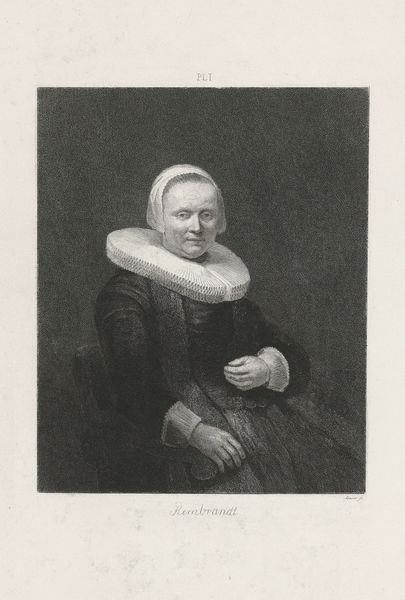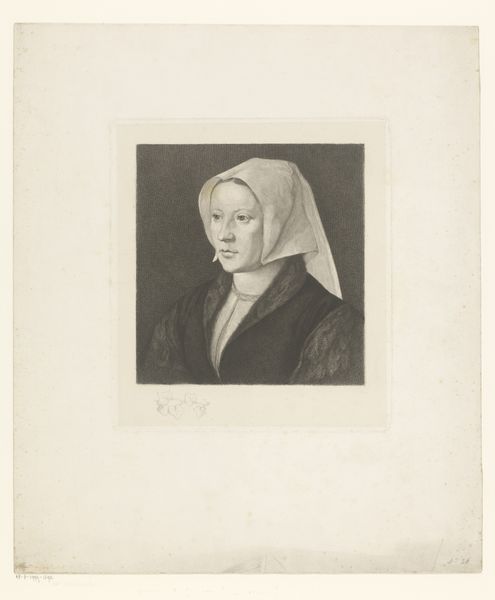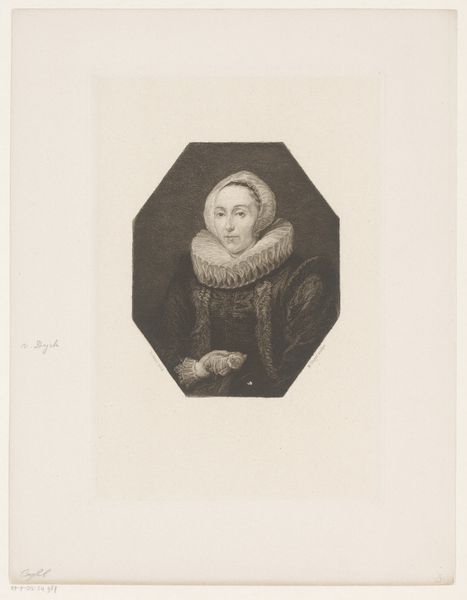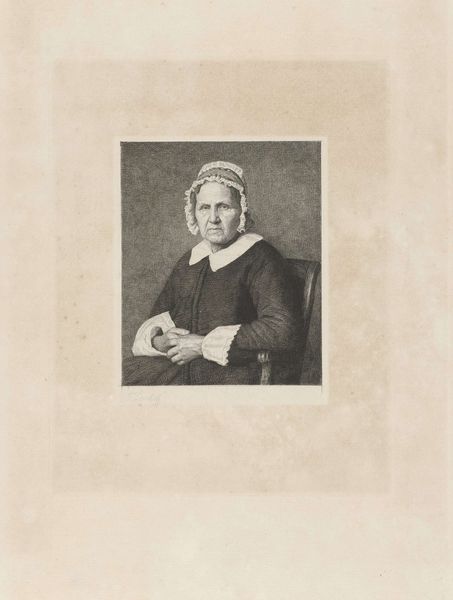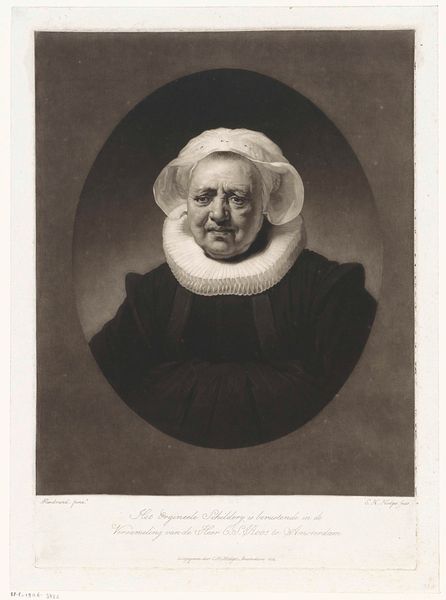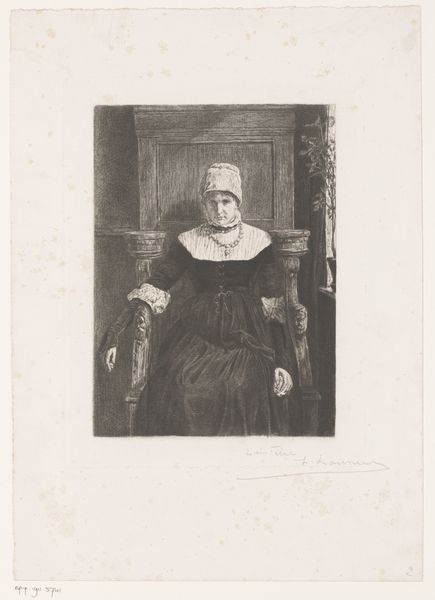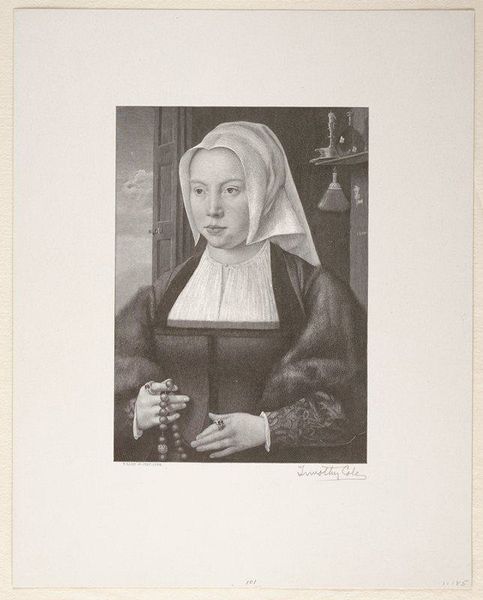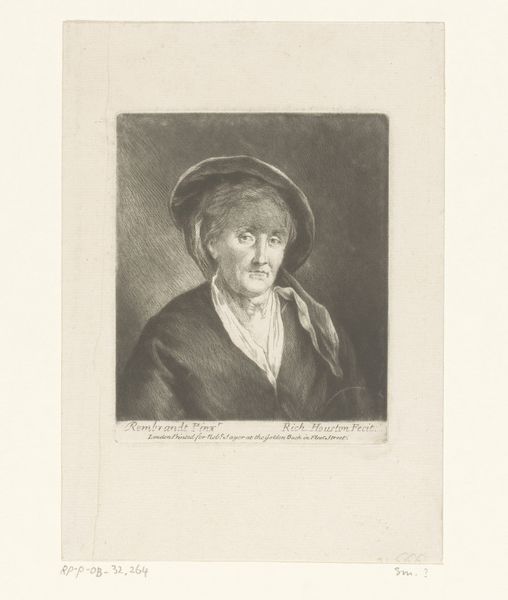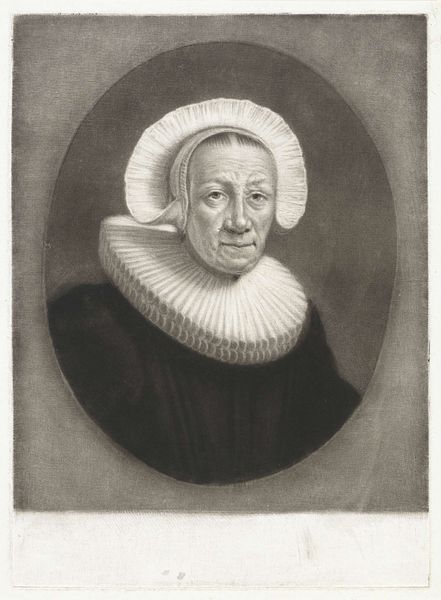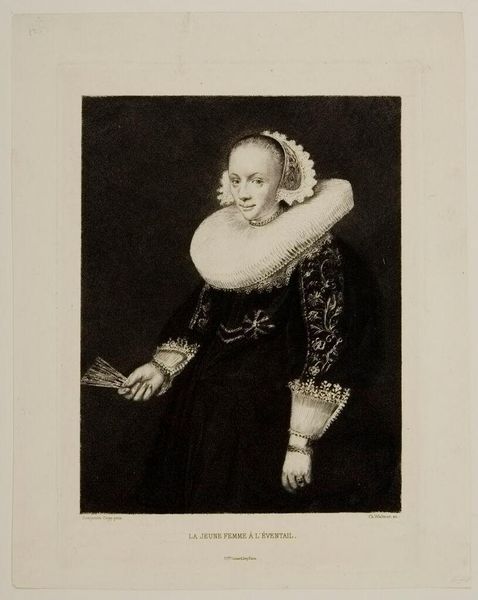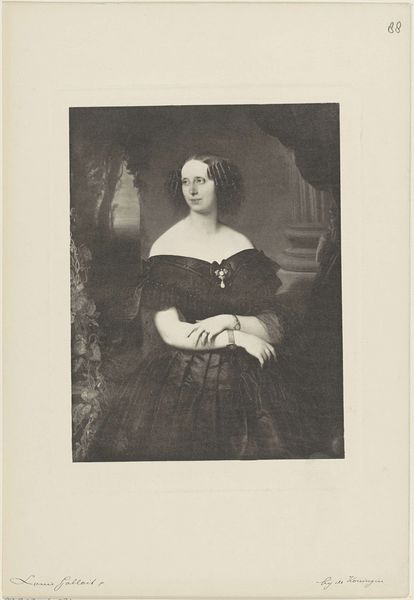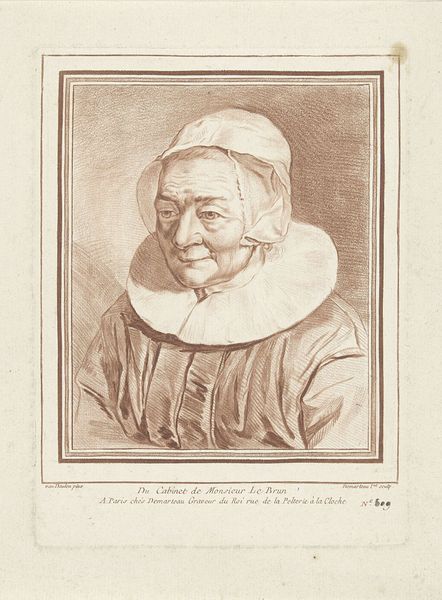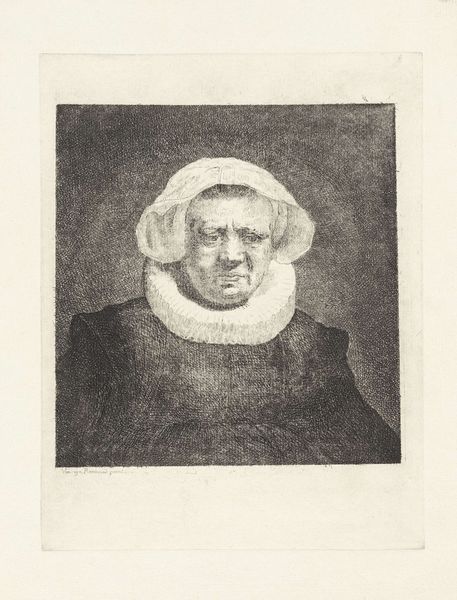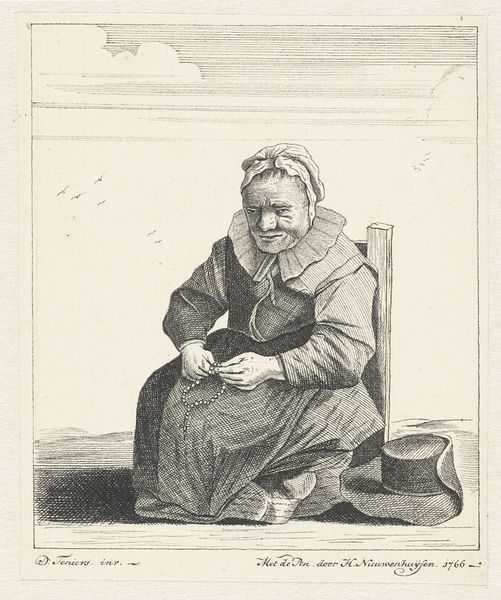
drawing, print, etching, engraving
#
portrait
#
pencil drawn
#
drawing
# print
#
etching
#
charcoal drawing
#
pencil drawing
#
pencil work
#
history-painting
#
engraving
#
realism
Dimensions: height 345 mm, width 257 mm
Copyright: Rijks Museum: Open Domain
Willem Steelink II created this portrait of Anna Six-Wijmer using etching, a printmaking technique, sometime in the late 19th or early 20th century. Looking at this image, we can see how Steelink engages with the visual language of the Dutch Golden Age. The sober attire, the ruff collar, and the sitter's calm, direct gaze all evoke the portraits of artists like Rembrandt and Hals from the 17th century. This wasn't accidental. In the late 19th century, there was a surge of interest in Dutch history and culture, a kind of nationalistic nostalgia. Artists looked back to the Golden Age for inspiration, wanting to recapture a sense of national identity. But it's also important to remember that this wasn't a simple revival. The late 19th century was a time of great social change, with the rise of industrialization and new social movements. By looking at the original portraits that Steelink would have known, and the writings about Dutch national identity at the time, we can understand how this image is both a celebration of the past and a reflection on the present.
Comments
No comments
Be the first to comment and join the conversation on the ultimate creative platform.
